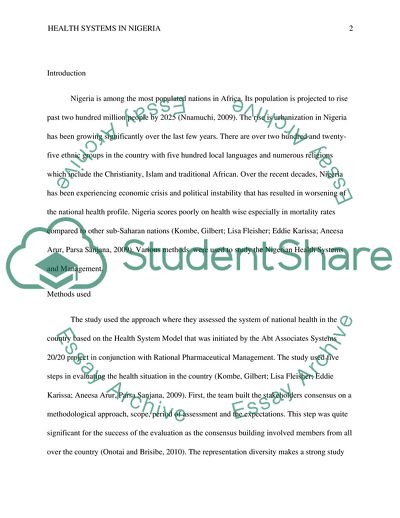Evaluation of Health Systems and Health Systems Management Coursework - 2. https://studentshare.org/medical-science/1880469-evaluation-of-health-systems-and-health-systems-management
Evaluation of Health Systems and Health Systems Management Coursework - 2. https://studentshare.org/medical-science/1880469-evaluation-of-health-systems-and-health-systems-management.


